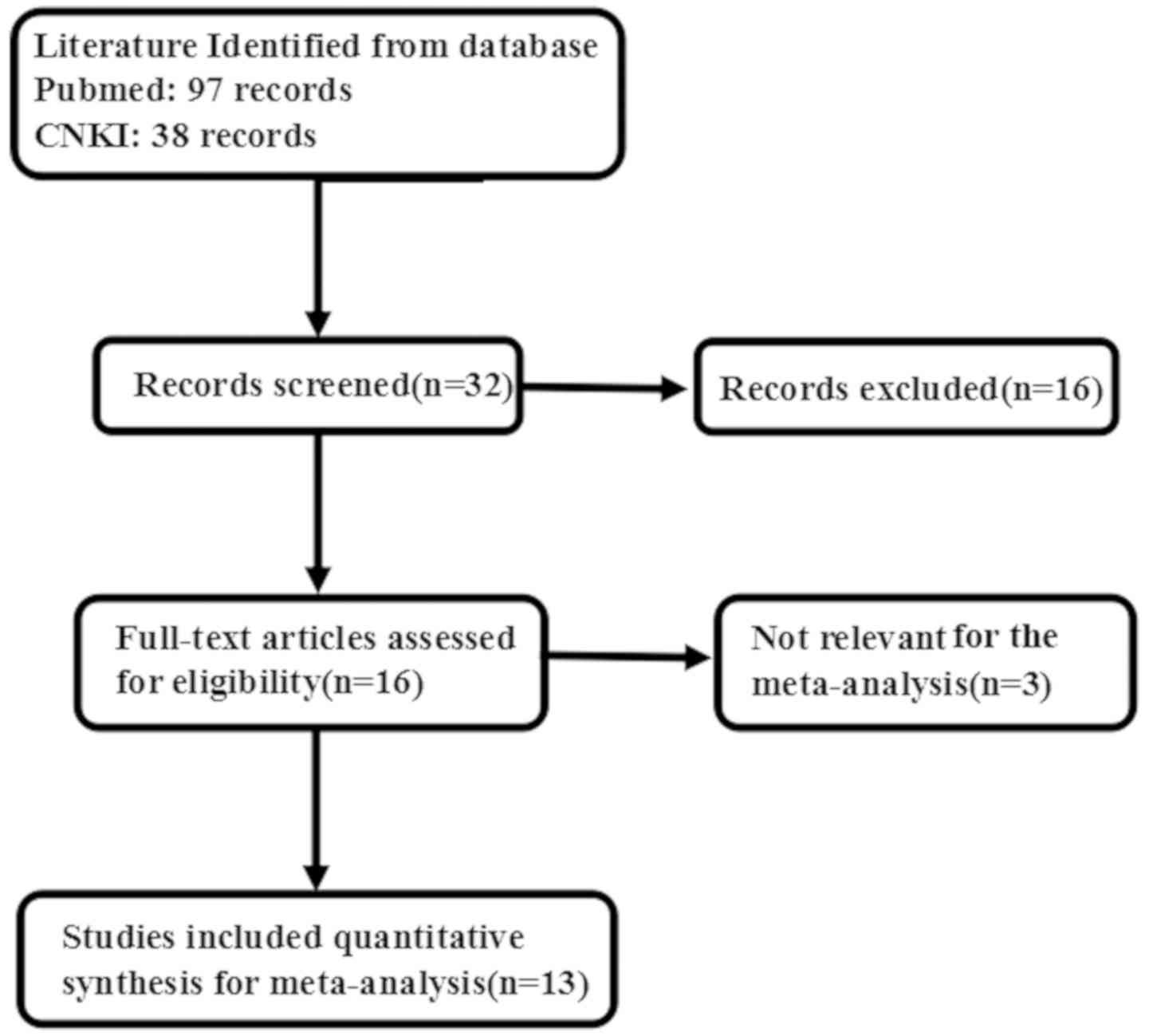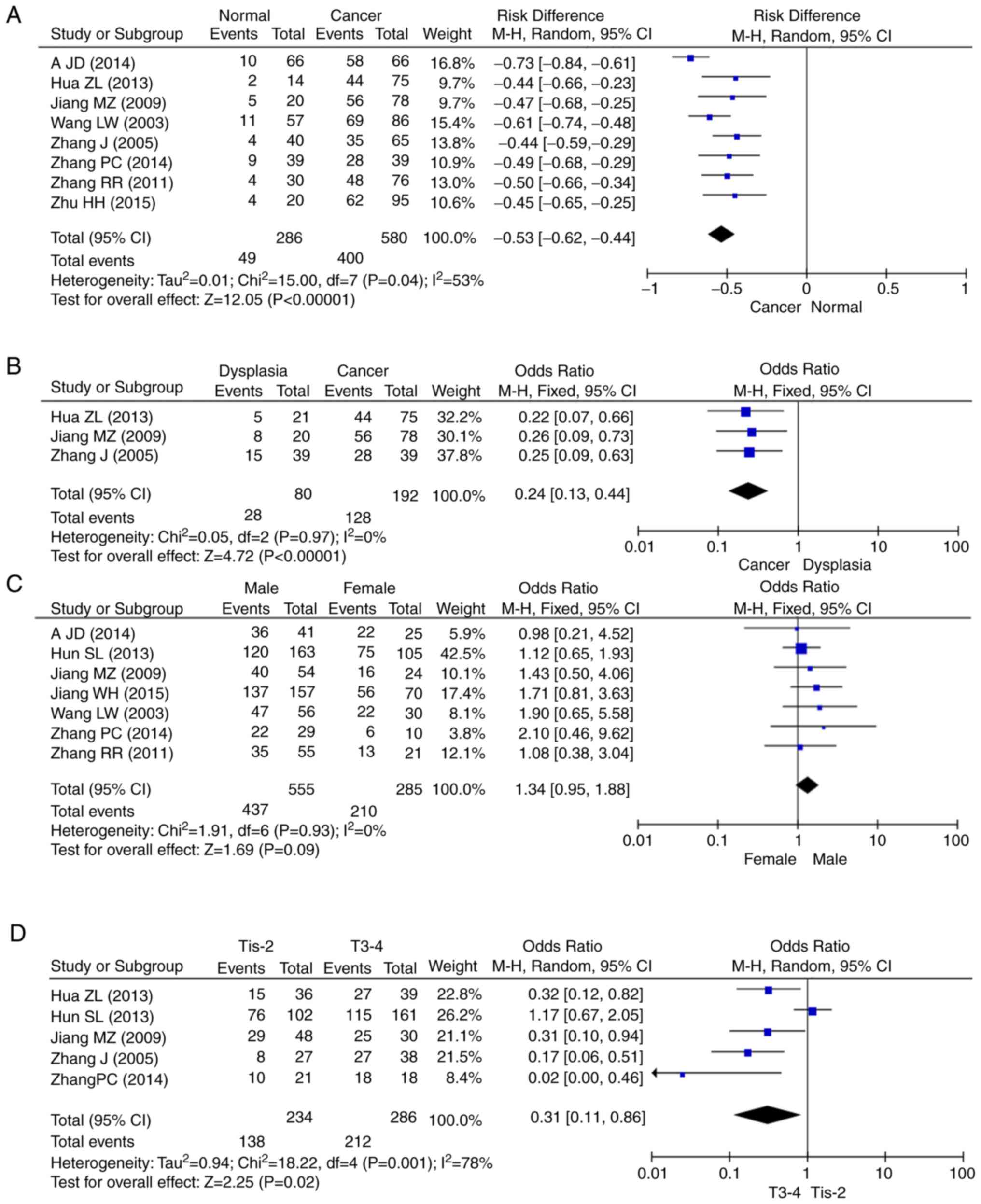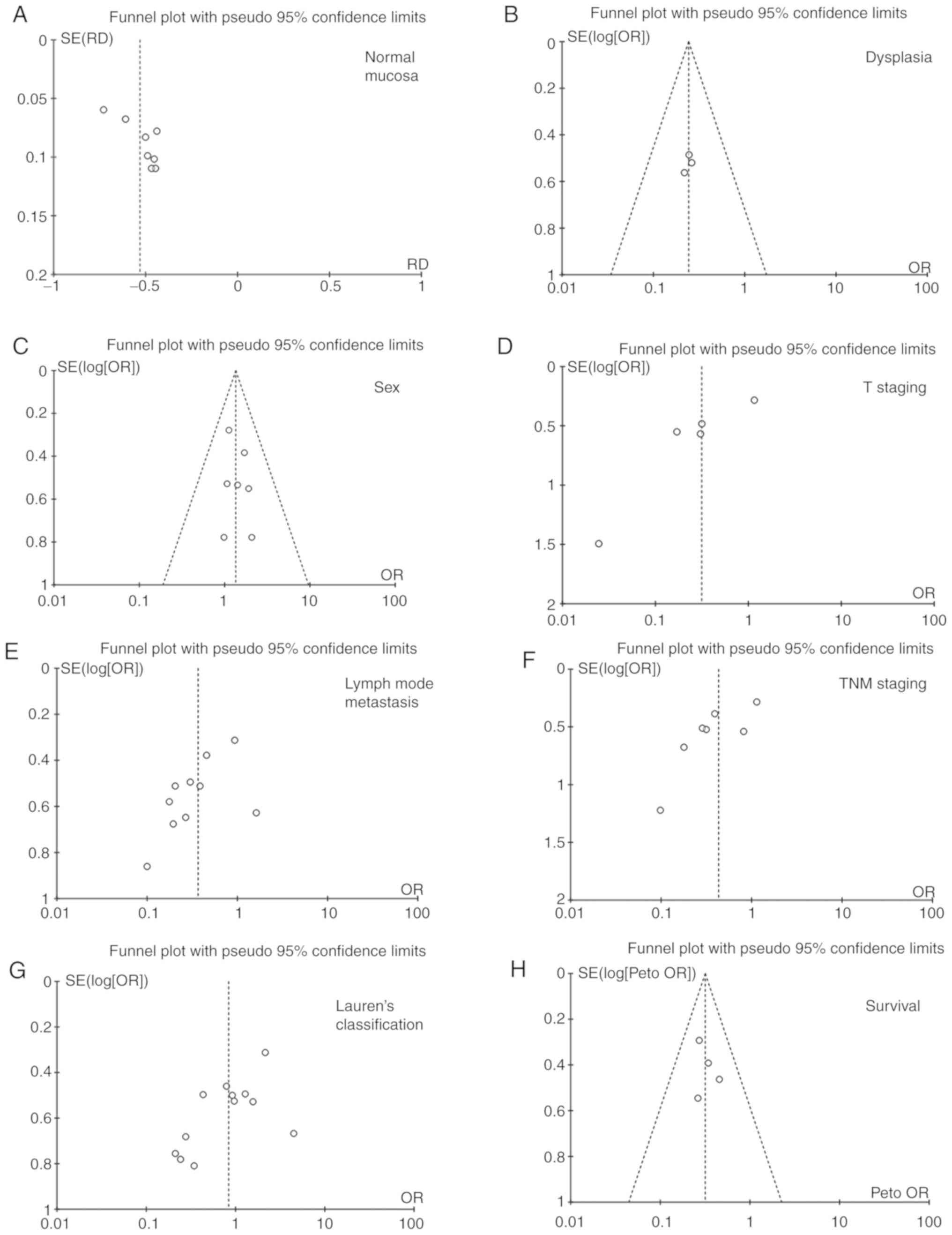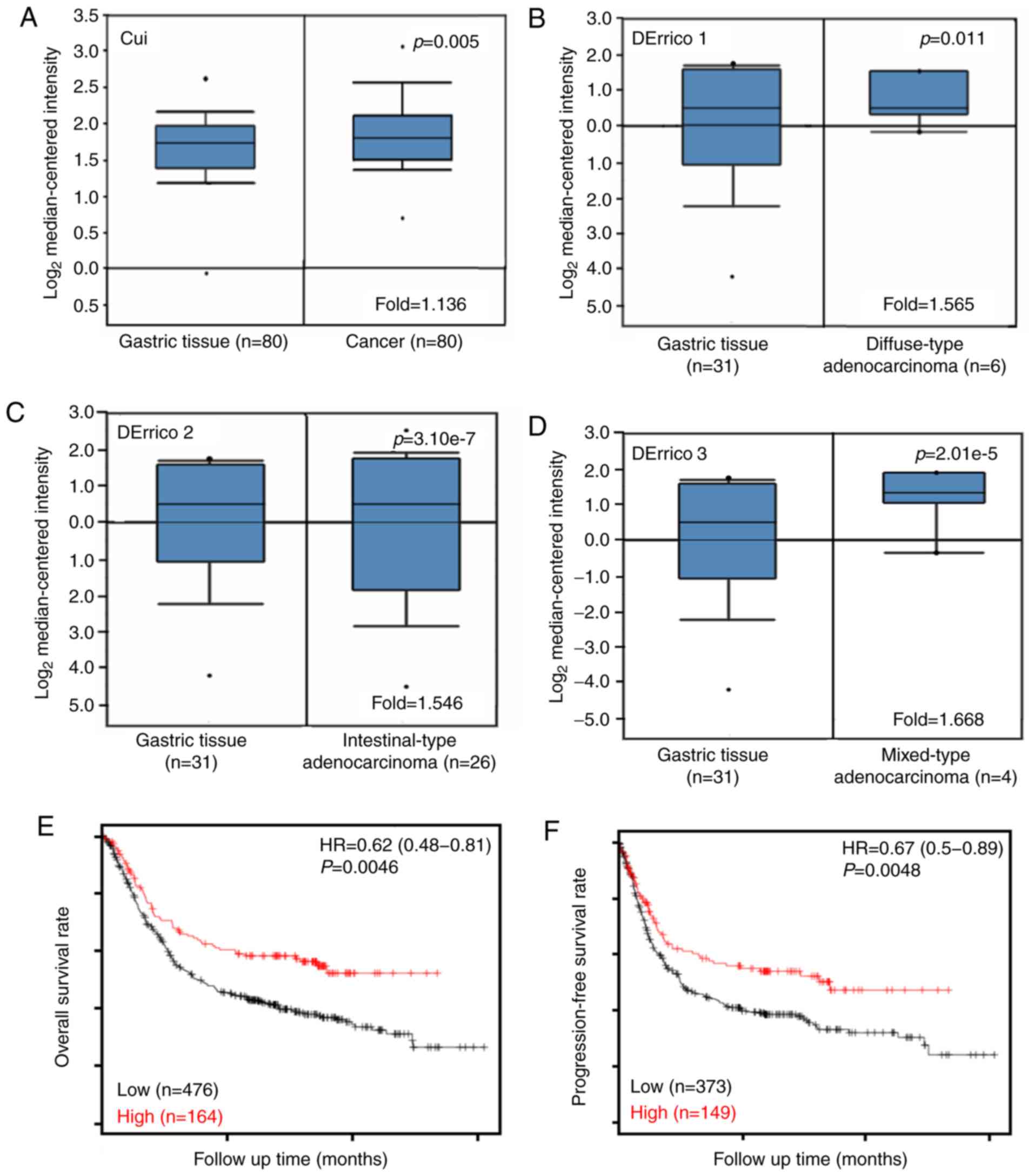|
1
|
Kadonaga JT, Carner KR, Masiarz FR and
Tjian R: Isolation of cDNA encoding transcription factor Sp1 and
functional analysis of the DNA binding domain. Cell. 51:1079–1090.
1987. View Article : Google Scholar : PubMed/NCBI
|
|
2
|
Roder K, Kim KH and Sul HS: Induction of
murine H-rev107 gene expression by growth arrest and histone
acetylation: Involvement of an Sp1/Sp3-binding GC-box. Biochem
Biophys Res Commun. 294:63–70. 2002. View Article : Google Scholar : PubMed/NCBI
|
|
3
|
Samson SL and Wong NC: Role of Sp1 in
insulin regulation of gene expression. J Mol Endocrinol.
29:265–279. 2002. View Article : Google Scholar : PubMed/NCBI
|
|
4
|
Safe S and Abdelrahim M: Sp transcription
factor family and its role in cancer. Eur J Cancer. 41:2438–2448.
2005. View Article : Google Scholar : PubMed/NCBI
|
|
5
|
Zaid A, Li R, Luciakova K, Barath P, Nery
S and Nelson BD: On the role of the general transcription factor
Sp1 in the activation and repression of diverse mammalian oxidative
phosphorylation genes. J Bioenerg Biomembr. 31:129–135. 1999.
View Article : Google Scholar : PubMed/NCBI
|
|
6
|
Duan H, Heckman CA and Linda MB: Histone
deacetylase inhibitors down-regulate bcl-2 expression and induce
apoptosis in t(14;18) lymphomas. Mol Cell Biol. 25:1608–1619. 2005.
View Article : Google Scholar : PubMed/NCBI
|
|
7
|
Wu J, Ling X, Pan D, Apontes P, Song L,
Liang P, Altieri DC, Beerman T and Li F: Molecular mechanism of
inhibition of survivin transcription by the GC-rich
sequence-selective DNA binding antitumor agent, hedamycin: Evidence
of survivin down-regulation associated with drug sensitivity. J
Biol Chem. 280:9745–9751. 2005. View Article : Google Scholar : PubMed/NCBI
|
|
8
|
Martin M, Le J and Delanlan S: TGF-beta1
and radiation fibrosis: A master switch and a specific therapeutic
target? Int J Rad Oncol Biol Phys. 47:277–290. 2000. View Article : Google Scholar
|
|
9
|
Jungert K, Buck A, Buchholz M, Wagner M,
Adler G, Gress TM and Ellenrieder V: Smad-Sp1 complexes mediate
TGFbeta-induced early transcription of oncogenic Smad7 in
pancreatic cancer cells. Carcinogenesis. 27:2392–2401. 2006.
View Article : Google Scholar : PubMed/NCBI
|
|
10
|
Wang S, Wang W, Wesley RA and Danner RL: A
Sp1 binding site of the tumor necrosis factor alpha promoter
functions as a nitric oxide response element. J Biol Chem.
274:33190–33193. 1999. View Article : Google Scholar : PubMed/NCBI
|
|
11
|
Chae YS, Kim JG, Sohn SK, Cho YY, Moon JH,
Bae HI, Park JY, Lee MH, Lee HC, Chung HY and Yu W: Investigation
of vascular endothelial growth factor gene polymorphisms and its
association with clinicopathologic characteristics in gastric
cancer. Oncology. 71:266–272. 2006. View Article : Google Scholar : PubMed/NCBI
|
|
12
|
Yao JC, Wang L, Wei D, Gong W, Hassan M,
Wu TT, Mansfield P, Ajani J and Xie K: Association between
expression of transcription factor Sp1 and increased vascular
endothelial growth factor expression, advanced stage, and poor
survival in patients with resected gastric cancer. Clin Cancer Res.
15:4109–4117. 2004. View Article : Google Scholar
|
|
13
|
Maurer GD, Leupold JH, Schewe DM, Biller
T, Kates RE, Hornung HM, Lau-Werner U, Post S and Allgayer H:
Analysis of specific transcriptional regulators as early predictors
of independent prognostic relevance in resected colorectal cancer.
Clinic Cancer Res. 13:1123–1132. 2007. View Article : Google Scholar
|
|
14
|
Chen QN, Yuan P and Fan YZ: Expression of
transcription factor Sp1 in pancreatic cancer and its relationship
with prognosis. J Tongji Univ. 30:5–8. 2009.
|
|
15
|
Zhang W, Kadam S, Emerson BM and Bieker
JJ: Site-specific acetylation by p300 or CREB binding protein
regulates erythroid Krüppel-like factor transcriptional activity
via its interaction with the SWI-SNF complex. Mol Cell Biol.
21:2413–2422. 2001. View Article : Google Scholar : PubMed/NCBI
|
|
16
|
Chiefari E, Brunetti A, Arturi F, Bidart
JM, Russo D, Schlumberger M and Filetti S: Increased expression of
AP2 and Sp1 transcription factors in human thyroid tumors: A role
in NIS expression regulation? BMC Cancer. 2:352002. View Article : Google Scholar : PubMed/NCBI
|
|
17
|
Hosoi Y, Watanabe T, Nakagawa K, Matsumoto
Y, Enomoto A, Morita A, Nagawa H and Suzuki N: Up-regulation of
DNA-dependent protein kinase activity and Sp1 in colorectal cancer.
Int J Oncol. 25:461–468. 2004.PubMed/NCBI
|
|
18
|
Maor S, Mayer D, Yarden RI, Lee AV,
Sarfstein R, Werner H and Papa MZ: Estrogen receptor regulates
insulin-like growth factor-I receptor gene expression in breast
tumor cells: Involvement of transcription factor Sp1. J Endocrinol.
191:605–612. 2006. View Article : Google Scholar : PubMed/NCBI
|
|
19
|
Han WD, Mu YM, Lu XC, Xu ZM, Li XJ, Yu L,
Song HJ, Li M, Lu JM, Zhao YL and Pan CY: Up-regulation of LRP16
mRNA by 17beta-estradiol through activation of estrogen receptor
alpha (ERalpha), but not ERbeta, and promotion of human breast
cancer MCF-7 cell proliferation: A preliminary report. Endocr Relat
Cancer. 10:217–224. 2003. View Article : Google Scholar : PubMed/NCBI
|
|
20
|
Marin M, Karis A, Visser P, Grosveld F and
Philipsen S: Transcription factor Sp1 is essential for early
embryonic development but dispensable for cell growth and
differentiation. Cell. 89:619–628. 1997. View Article : Google Scholar : PubMed/NCBI
|
|
21
|
Liu DC, Liang Q, Tao T, Huang YQ, Xu B,
Chen NG, Zhang ZG, Dong Y, Han CH and Chen M: Sp1 promotes cell
metabolism and proliferation through PKM2 pathway in prostate
cancer. J Southeast Univ (Med Sci Edi). 10:337–341. 2015.
|
|
22
|
Beaver LM, Buchanan A, Sokolowski EI,
Riscoe AN, Wong CP, Chang JH, Löhr CV, Williams DE, Dashwood RH and
Ho E: Transcriptome analysis reveals a dynamic and differential
transcriptional response to sulforaphane in normal and prostate
cancer cells and suggests a role for Sp1 in chemoprevention. Mol
Nutr Food Res. 58:2001–2013. 2014. View Article : Google Scholar : PubMed/NCBI
|
|
23
|
Hao C and Meng A: Sp1-like transcription
factors are regulators of embryonic development in vertebrates. Dev
Growth Differ. 47:201–211. 2005. View Article : Google Scholar : PubMed/NCBI
|
|
24
|
Homas K, Wu J, Sung DY, Thompson W, Powell
M, McCarrey J, Gibbs R and Walker W: SP1 transcription factors in
male germ cell development and differentiation. Mol Cell
Endocrinol. 270:1–7. 2007. View Article : Google Scholar : PubMed/NCBI
|
|
25
|
Wei YZ, Li CF and Xue YW: Expression of
transcription factor SP1, vascular endothelial growth factor and
CD34 in serosa-infiltrating gastric cancer and their relationship
with biological behavior and prognosis. Zhonghua Wei Chang Wai Ke
Za Zhi. 12:145–149. 2009.(In Chinese). PubMed/NCBI
|
|
26
|
Wang LW, Wei D, Huang S, Peng Z, Le X, Wu
TT, Yao J, Ajani J and Xie K: Transcription factor Sp1 expression
is a significant predictor of survival in human gastric cancer.
Clin Cancer Res. 9:6371–6380. 2003.PubMed/NCBI
|
|
27
|
Hua ZL, Zhu YC, Guo GP, Ling RB, Zhou Q
and Shi AW: Expression of transcription factors in gastric cancer
and its relationship with clinical pathology. Med Imaging.
9:162–163. 2013.
|
|
28
|
Zhang J, Zhu ZG, Ji J, Yuan F, Yu YY, Liu
BY and Lin YZ: Transcription factor Sp1 expression in gastric
cancer and its relationship to long-term prognosis. World J
Gastroenterol. 11:2213–2217. 2005. View Article : Google Scholar : PubMed/NCBI
|
|
29
|
Zhang PC, Liang L, Zhang DK, Yao BH, Song
L, Li Y and Zhao JS: Expression and significance of transcription
factor Sp1 and Stat-3 in gastric carcinoma. Chin J Gen Surg.
23:1714–1716. 2014.
|
|
30
|
Zhang RR: Expression of correlation
relationship and significance of Sp1, Notch1 and KLF4 in gastric
cancer. Msater Thesis, Shanxi Med Univ China. 2011.
|
|
31
|
A JD: The clinical study on expression and
significance of Sp1 protein in gastric carcinoma. Master Thesis,
Qinghai Univ China. 2011.
|
|
32
|
Zhu HH, Wu XM and Ye CJ: Expression of
matrix metalloproteinase-11 and the transcription factor Sp1 in
gastric cancer. J Qinghai Med College. 36:49–53. 2015.
|
|
33
|
Jiang MZ: Study about the expression and
significance of KLF5, Sp1 and CyclinD1 in carcinoma of stomach.
Kunming. Msater Thesis, Med Univ China. 2009.
|
|
34
|
Jiang W, Jin Z, Zhou F, Cui J and Wang L
and Wang L: High co-expression of Sp1 and HER-2 is correlated with
poor prognosis of gastric cancer patients. Surg Oncol. 24:220–225.
2015. View Article : Google Scholar : PubMed/NCBI
|
|
35
|
Cui JF, Zhao CY, Cao LY, Wu WN, Li YH,
Wang Y, Xue LY and Zhang XG: Comparison of KLF4, SP1, and Cyclin D1
expressions between ad-enocarcinanoma of the esophagogastric
junction and distal gastric adenocarcinoma. Chin J Clin Oncol.
41:108–112. 2014.
|
|
36
|
Lee HS, Park CK, Oh E, Erkin ÖC, Jung HS,
Cho MH, Kwon MJ, Chae SW, Kim SH, Wang LH, et al: Low SP1
expression differentially affects intestinal-type compared with
diffuse-type gastric adenocarcinoma. PLoS One. 8:e555222013.
View Article : Google Scholar : PubMed/NCBI
|
|
37
|
Kumar AP and Butler AP: Serum responsive
gene expression mediated by Sp1. Biochem Biophys Res Commun.
252:517–523. 1998. View Article : Google Scholar : PubMed/NCBI
|
|
38
|
Chen F, Zhang F, Rao J and Studzinski GP:
Ectopic expression of truncated Sp1 transcription factor prolongs
the S phase and reduces the growth rate. Anticancer Res.
20:661–667. 2000.PubMed/NCBI
|
|
39
|
Peng H, Li Y, Liu Y, Zhang J, Chen K,
Huang A and Tang H: HBx and SP1 upregulate DKK1 expression. Acta
Biochim Pol. 64:35–39. 2017.PubMed/NCBI
|
|
40
|
Yu MH and Zhang W: TEAD1 enhances
proliferation via activating SP1 in colorectal cancer. Biomed
Pharmacother. 83:496–501. 2016. View Article : Google Scholar : PubMed/NCBI
|
|
41
|
Shi H, Li Y, Feng G, Li L, Fang R, Wang Z,
Qu J, Ding P, Zhang X and Ye L: The oncoprotein HBXIP up-regulates
FGF4 through activating transcriptional factor Sp1 to promote the
migration of breast cancer cells. Biochem Biophys Res Commun.
471:89–94. 2016. View Article : Google Scholar : PubMed/NCBI
|
|
42
|
Milanini-Mongiat J, Pouysségur J and Pagès
G: Identification of two Sp1 phosphorylation sites for p42/p44
mitogen-activated protein kinases. Their implication in vascular
endothelial growth factor gene transcription. J Biol Chem.
277:20631–20639. 2002. View Article : Google Scholar : PubMed/NCBI
|
|
43
|
Merchant JL, Du M and Todisco A: Sp1
phosphorylation by Erk 2 stimulates DNA binding. Biochem Biophys
Res Commun. 254:454–461. 1999. View Article : Google Scholar : PubMed/NCBI
|
|
44
|
Wei D, Wang L, He Y, Xiong HQ, Abbruzzese
JL and Xie K: Celecoxib inhibits vascular endothelial growth factor
expression in and reduces angiogenesis and metastasis of human
pancreatic cancer via suppression of Sp1 transcription factor
activity. Cancer Res. 64:2030–2038. 2004. View Article : Google Scholar : PubMed/NCBI
|
|
45
|
Zhao S, Venkatasubbarao K, Li S and
Freeman JW: Requirement of a specific Sp1 site for histone
deacetylase-mediated repression of transforming growth factor beta
Type II receptor expression in human pancreatic cancer cells.
Cancer Res. 63:2624–2630. 2003.PubMed/NCBI
|
|
46
|
Suske G: The Sp-family of transcription
factors. Gene. 238:291–300. 1999. View Article : Google Scholar : PubMed/NCBI
|
|
47
|
Wright C, Angus B, Napier J, Wetherall M,
Udagawa Y, Sainsbury JR, Johnston S, Carpenter F and Horne CH:
Prognostic factors in breast cancer: Immunohistochemical staining
for SP1 and NCRC 11 related to survival, tumour epidermal growth
factor receptor and oestrogen receptor status. J Pathol.
153:325–331. 1987. View Article : Google Scholar : PubMed/NCBI
|
|
48
|
Shi Q, Le X, Abbruzzese JL, Peng Z, Qian
CN, Tang H, Xiong Q, Wang B, Li XC and Xie K: Constitutive Sp1
activity is essential for differential constitutive expression of
vascular endothelial growth factor in human pancreatic
adenocarcinoma. Cancer Res. 61:4143–4154. 2001.PubMed/NCBI
|
|
49
|
Zhang J, Jiang RX, Fan XM, Lou L, Liu WN,
Zhao XW and Li YH: Expression and prognostic significance of Sp1.
Klf4 and p21 in the ovary serous adenocarcinoma. J Clin Exp Pathol.
33:22–26. 2017.
|
|
50
|
Liu CF, Ji YC, Sun YY and Li XD:
Expression of SP1 in colorectal cancer and its relation ship with
biological behavior and prognosis. Chin J Gastroenterol Hepatol.
20:51–53. 2011.
|
|
51
|
Wang XB, Peng WQ, Yi ZJ, Zhu SL and Gan
QH: Expression and prognostic value of transcriptional factor sp1
in breast cancer. Ai Zheng. 26:996–1000. 2007.(In Chinese).
PubMed/NCBI
|
|
52
|
Pan Q, Zhu K, Chen WY, Zhang JB, Sun HC,
Wang L and Ren N: Correlation of transcription factor Sp1
expression with clinical and pathological characteristics and
prognosis of hepatocellular carcinoma. Chin J Clin Oncol.
41:1284–1287. 2014.
|
|
53
|
Chen QN, Yuan P, Fan YZ, et al: Expression
of transcription factor Sp1 in human pancreatic ductal carcinoma
and its relationship with prognosis. J Tongji Univ (Med Sci).
30:5–8. 2009.
|


















